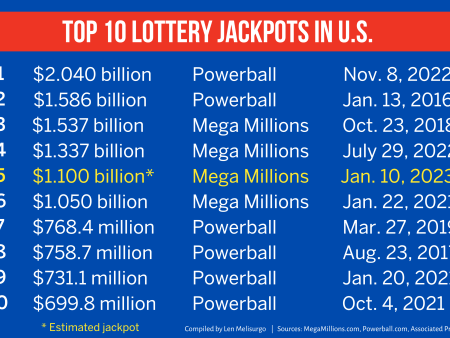This guide explains how lottery tickets are chosen and assigned, detailing the use of RNGs, security measures, and regulations to ensure fairness, transparency, and player trust. Top Ten Lottery
How Are Lottery Tickets Chosen and Assigned to Players: A Comprehensive Guide
How Are Lottery Tickets Chosen and Assigned to Players: A Comprehensive Guide
Lottery games have captivated the imaginations of millions across the globe, offering a tantalizing promise of life-changing rewards with just a small investment. As players eagerly select their numbers and purchase tickets, a question often arises: **How are lottery tickets chosen and assigned to players?** Understanding the intricacies behind this process can demystify the experience and add an extra layer of appreciation for the mechanisms that underpin these popular games of chance. In this comprehensive guide, we will delve into the various methods used by different lotteries around the world to choose and assign tickets, explore the technology and regulations in place to ensure fairness and transparency, and provide insights into how you can enhance your lottery-playing experience. Whether you’re a seasoned player or a curious newcomer, this guide aims to illuminate every aspect of the lottery ticket selection process.
Random Number Generators (RNGs) play a crucial role in ensuring the fairness and integrity of lottery systems. At its core, an RNG is a sophisticated algorithm designed to produce a sequence of numbers that lack any predictable pattern. This randomness is vital in lottery games to ensure that every number combination has an equal chance of being selected, thereby upholding the principles of fairness and unbiased results. Modern lotteries use advanced computer-based RNGs, which are rigorously tested and certified by independent regulatory bodies to guarantee their reliability and randomness.
For lottery players, understanding how RNGs work can provide peace of mind. These systems are designed to be tamper-proof, with multiple layers of security to prevent any manipulation. Unlike traditional mechanical ball draws, which could potentially be influenced by physical factors, RNGs rely on complex mathematical algorithms that are immune to such biases. This ensures that every lottery draw is genuinely random, and every ticket has an equal opportunity to win.
In summary, RNGs are the backbone of modern lottery systems, ensuring that each draw is conducted with the highest standards of fairness and transparency. By leveraging cutting-edge technology and rigorous oversight, lotteries can provide players with a trustworthy gaming experience. Knowing that sophisticated RNGs govern the selection process can enhance players’ confidence and enjoyment as they engage in these thrilling games of chance.
Lottery terminals and machines play a pivotal role in the ticket generation process, ensuring that players receive their chosen numbers accurately and efficiently. When you purchase a lottery ticket from a retail location, the terminal scans your selected numbers or generates a quick-pick option if you prefer random selection. These terminals are connected to a central computer system that verifies and records each transaction in real-time, ensuring that every ticket is unique and securely logged. This seamless integration guarantees that your entry is valid for the upcoming draw, providing peace of mind to players.
Moreover, the technology behind these terminals is designed to combat fraud and maintain the integrity of the lottery system. Each terminal is equipped with advanced security features, such as encrypted data transmission and tamper-proof hardware, to prevent unauthorized access or manipulation. This robust security framework ensures that every ticket generated is legitimate and that the lottery process remains transparent and fair for all participants.
For online lottery platforms, similar principles apply but with added convenience. Digital lottery systems use secure algorithms to generate and store tickets in an online database, offering players the flexibility to participate from anywhere. Whether through physical terminals or digital platforms, these sophisticated systems work tirelessly to uphold the trust and reliability that are essential to the lottery’s appeal. By understanding the role of lottery terminals and machines, players can appreciate the meticulous processes in place to ensure a fair and enjoyable gaming experience.
When it comes to participating in lottery games, players generally have two main options for selecting their numbers: manual selection and Quick Pick. Manual selection allows players to choose their own numbers based on personal significance, patterns, or strategies. This method is often preferred by those who enjoy a more hands-on approach and believe that specific numbers might bring them luck. On the other hand, Quick Pick is an automated option where a computer randomly generates a set of numbers for the player. This method is popular among those who prefer convenience and trust the randomness of computer algorithms to give them an equal shot at winning.
Choosing between manual selection and Quick Pick largely depends on individual preferences and beliefs. Some players feel a sense of control and involvement when they pick their own numbers, often using birthdates, anniversaries, or other meaningful digits. Others appreciate the ease and speed of Quick Pick, especially when they’re unsure about which numbers to choose or want to avoid any potential bias in their selection process. Both methods offer the same odds of winning, as lottery outcomes are purely based on chance.
In essence, whether you opt for manual selection or Quick Pick, the key is to choose the method that makes your lottery experience enjoyable. Both options are designed to ensure fairness and provide an equal opportunity for every participant. By understanding these choices, you can make an informed decision that aligns with your playing style and enhances your overall enjoyment of the game.
The ticket assignment process in online lottery platforms is designed to be user-friendly, secure, and efficient, ensuring that players can easily participate from the comfort of their homes. When you select your numbers or opt for a Quick Pick on an online lottery site, the platform uses advanced algorithms to generate and assign a unique digital ticket for you. This ticket is then securely stored in the platform’s database, which is protected by robust encryption and cybersecurity measures. You will receive a confirmation email or notification with your ticket details, guaranteeing that your entry is valid for the upcoming draw.
One of the key advantages of online lottery platforms is the convenience they offer. You can purchase tickets anytime and anywhere without the need to visit a physical retailer. Additionally, these platforms often provide features such as automatic number checking and prize notifications, so you don’t have to worry about missing out on your winnings. The entire process is streamlined to enhance your playing experience while maintaining the highest standards of fairness and security.
Moreover, online lottery platforms are regulated by gaming authorities to ensure transparency and trustworthiness. They undergo rigorous audits and adhere to strict guidelines to protect players’ interests. This means that when you play the lottery online, you can have peace of mind knowing that your participation is both safe and legitimate. By understanding how the ticket assignment process works in online lottery platforms, you can fully appreciate the convenience and security they bring to your lottery-playing experience.
Ensuring fairness and transparency in lottery operations is paramount to maintaining player trust and the integrity of the game. Lotteries are meticulously regulated by governmental and independent bodies that set stringent guidelines for their operation. These regulations cover every aspect of the lottery process, from ticket sales to prize distribution, ensuring that all procedures are conducted transparently and fairly. Regular audits are conducted by third-party organizations to verify that the lottery systems are functioning correctly and to detect any irregularities. These audits include scrutinizing Random Number Generators (RNGs), security protocols, and financial transactions to ensure compliance with established standards.
The importance of these regulations and audits cannot be overstated, as they provide a robust framework that protects both players and operators. For players, this means an assurance that every ticket has an equal chance of winning and that the lottery results are genuinely random and unbiased. For operators, adhering to these regulations helps maintain credibility and public confidence in their lottery games. Transparency is further enhanced through public disclosures of audit results and regulatory compliance reports, which are often made available on official lottery websites.
In simple terms, regulations and audits act as the backbone of trustworthy lottery operations. They ensure that every step of the lottery process is monitored, verified, and transparent, giving players peace of mind and a fair chance to win. By understanding these measures, players can feel confident that they are participating in a legitimate and well-regulated game of chance.
Security measures in the printing and distribution of physical lottery tickets are critical to ensuring the integrity and fairness of the lottery process. From the moment a ticket is printed to the point it reaches a player, multiple layers of security are implemented to prevent fraud and counterfeiting. High-security printing techniques are employed, including special inks, holographic seals, and unique barcode systems that make it extremely difficult to replicate tickets illegally. These security features are similar to those used in currency printing, ensuring that each ticket is authentic and tamper-proof.
Once printed, lottery tickets are transported under stringent security protocols to authorized retail locations. This process often includes secure transportation methods, such as armored vehicles and GPS tracking, to monitor the delivery of tickets in real-time. Retailers are also required to follow strict guidelines when handling and selling tickets, including secure storage and regular inventory checks, to prevent unauthorized access or theft. These comprehensive measures ensure that every ticket sold is legitimate and that the lottery system remains transparent and trustworthy.
In essence, the rigorous security measures in place for printing and distributing physical lottery tickets protect both players and the integrity of the lottery itself. By implementing advanced printing technologies and strict distribution protocols, lottery operators can guarantee that every ticket is authentic and that the chances of fraud are minimized. This not only enhances player confidence but also ensures a fair and enjoyable gaming experience for everyone involved.
Blockchain technology is revolutionizing modern lottery systems by providing unparalleled transparency, security, and fairness. At its core, blockchain is a decentralized ledger that records transactions across multiple computers in a way that ensures data integrity and prevents tampering. In the context of lotteries, this means every ticket purchase, draw result, and prize distribution can be securely recorded on the blockchain, making the entire process transparent and verifiable by anyone. This eliminates the need for trust in a central authority and reduces the risk of fraud or manipulation, thereby enhancing player confidence.
One of the most significant benefits of blockchain in lottery systems is its ability to provide real-time auditing and immutable records. Unlike traditional lottery systems that rely on centralized databases prone to hacking and errors, blockchain’s decentralized nature ensures that once data is recorded, it cannot be altered or deleted. This feature is invaluable for both players and operators as it guarantees the fairness of each draw and the authenticity of every ticket. Players can independently verify that their entries have been correctly recorded and that draws are conducted fairly, adding an extra layer of assurance.
Moreover, blockchain technology allows for smart contracts—self-executing contracts with terms directly written into code—which can automate various aspects of the lottery process. For instance, prize funds can be automatically distributed to winners without any human intervention, reducing delays and ensuring that payouts are made promptly and accurately. By leveraging blockchain technology, modern lotteries can offer a more secure, transparent, and efficient gaming experience, making it an increasingly popular choice for both traditional lottery operators and new digital platforms.
Different countries and states have unique approaches to handling lottery ticket assignment, reflecting their regulatory environments and technological advancements. In the United States, for example, state-run lotteries utilize a combination of physical retail locations and online platforms to distribute tickets. Retailers use secure lottery terminals to print tickets on demand, while online platforms employ Random Number Generators (RNGs) to assign numbers digitally. Each method is designed to ensure fairness and transparency, with rigorous oversight by state lottery commissions to prevent fraud and maintain integrity.
In contrast, many European countries have embraced digital solutions for lottery ticket assignment. Nations like the United Kingdom and Spain offer robust online lottery systems where players can select their numbers or opt for Quick Picks via secure websites and mobile apps. These platforms use advanced encryption and cybersecurity measures to protect player data and ensure that each ticket is unique and verifiable. Regulatory bodies in these countries conduct regular audits to ensure compliance with strict standards, providing players with confidence in the fairness of the draw.
Additionally, some countries have incorporated blockchain technology into their lottery systems to further enhance transparency and security. For instance, certain Asian countries are exploring blockchain-based lotteries that record every transaction on a decentralized ledger, making it nearly impossible to tamper with results or tickets. This innovative approach not only ensures fairness but also allows players to independently verify the authenticity of their entries. By understanding how different regions handle lottery ticket assignment, players can appreciate the various measures in place to ensure a fair and enjoyable gaming experience across the globe.
The psychology behind number selection in lottery games is a fascinating blend of strategies and superstitions that reflect human behavior and beliefs. Many players rely on personal significance when choosing their numbers—birthdates, anniversaries, or other meaningful dates often top the list. This approach gives players a sense of control and emotional involvement, making the lottery experience more engaging. However, it’s important to note that while these numbers hold personal value, they don’t increase the odds of winning, as lottery draws are purely random.
On the other hand, some players employ various strategies and patterns in hopes of improving their chances. These can range from choosing numbers that haven’t appeared in recent draws to selecting sequences or even using numerology principles. While these methods might make the process more enjoyable or seemingly logical, they don’t alter the fundamental randomness of the lottery. Every number combination has an equal probability of being drawn, regardless of any perceived patterns or strategies.
Superstitions also play a significant role in how people select their lottery numbers. Many believe in “lucky” numbers or rituals that can influence their fortunes. Common examples include avoiding certain numbers considered unlucky or performing specific actions before buying a ticket. While these superstitions add an element of fun and tradition, they have no actual impact on the outcome of the draw. Understanding the psychology behind number selection not only makes playing the lottery more interesting but also highlights that, ultimately, each ticket has an equal chance of winning.
By exploring these psychological aspects, players can better appreciate the diverse motivations and beliefs that drive number selection, while also recognizing the inherent randomness and fairness of lottery games.
Technological innovations are revolutionizing the future of lottery games, making them more accessible, secure, and engaging for players worldwide. One of the most significant advancements is the integration of blockchain technology, which ensures unparalleled transparency and security. By recording every ticket purchase and draw result on a decentralized ledger, blockchain eliminates the risk of fraud and manipulation, offering players peace of mind knowing that the process is fair and verifiable. Additionally, smart contracts can automate prize distributions, ensuring timely and accurate payouts without human intervention.
Another game-changing innovation is the rise of mobile and online lottery platforms. These digital solutions allow players to participate in lotteries from anywhere at any time, providing unmatched convenience. Sophisticated Random Number Generators (RNGs) ensure that numbers are selected randomly and fairly, whether you choose your own or opt for a Quick Pick. Enhanced cybersecurity measures protect player data, making online lottery participation as safe as it is convenient. Moreover, features like automatic number checking and instant prize notifications heighten the user experience by eliminating manual checks and ensuring players never miss out on their winnings.
Artificial Intelligence (AI) is also making its mark by offering personalized lottery experiences. AI algorithms can analyze past behavior to recommend numbers or games that align with a player’s preferences, thereby enhancing engagement. Predictive analytics can even provide insights into patterns and trends, although it’s crucial to remember that lottery outcomes are fundamentally random. These technological innovations not only make playing the lottery more enjoyable but also uphold the highest standards of fairness and security, shaping a promising future for lottery enthusiasts everywhere.
How are lottery tickets chosen and assigned to players?











